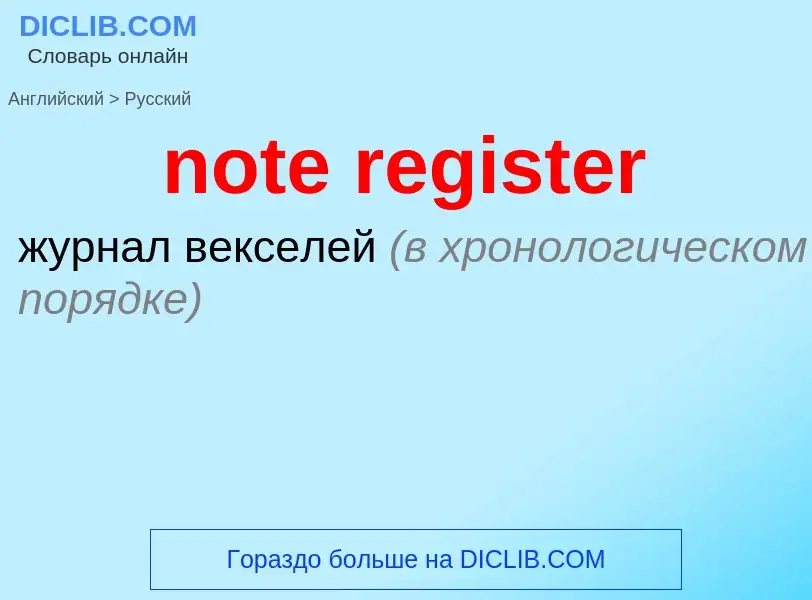Перевод и анализ слов искусственным интеллектом ChatGPT
На этой странице Вы можете получить подробный анализ слова или словосочетания, произведенный с помощью лучшей на сегодняшний день технологии искусственного интеллекта:
- как употребляется слово
- частота употребления
- используется оно чаще в устной или письменной речи
- варианты перевода слова
- примеры употребления (несколько фраз с переводом)
- этимология
note register - перевод на русский
общая лексика
адресный регистр, регистр адреса
регистр процессора, содержащий полный адрес ОЗУ или часть адреса, используемую при вычислении исполнительного адреса (effective address) данных или следующей исполняемой команды
Смотрите также
общая лексика
регистр общего назначения, РОН
регистр центрального процессора, в котором можно кроме операций пересылок данных выполнять логические и арифметические команды
синоним
Смотрите также
вычислительная техника
регистр данных
регистр памяти
общая лексика
регистр состояния
['redʒɪstə,haus]
общая лексика
Реджистер-Хаус (здание государственного архива в г. Эдинбурге [Edinburgh])
Определение
Википедия
In sociolinguistics, a register is a variety of language used for a particular purpose or in a particular communicative situation. For example, when speaking officially or in a public setting, an English speaker may be more likely to follow prescriptive norms for formal usage than in a casual setting, for example, by pronouncing words ending in -ing with a velar nasal instead of an alveolar nasal (e.g., walking rather than walkin'), choosing words that are considered more "formal" (such as father vs. dad or child vs. kid), and refraining from using words considered nonstandard, such as ain't and y'all.
As with other types of language variation, there tends to be a spectrum of registers rather than a discrete set of obviously distinct varieties—numerous registers can be identified, with no clear boundaries between them. Discourse categorisation is a complex problem, and even in the general definition of register given above (language variation defined by use rather than user), there are cases where other kinds of language variation, such as regional or age dialect, overlap. Due to this complexity, scholarly consensus has not been reached for the definitions of terms such as register, field, or tenor; different scholars' definitions of these terms are often in direct contradiction of each other.
Additional terms such as diatype, genre, text types, style, acrolect, mesolect, basilect, sociolect, and ethnolect, among many others, may be used to cover the same or similar ground. Some prefer to restrict the domain of the term register to a specific vocabulary (which one might commonly call slang, jargon, argot, or cant), while others argue against the use of the term altogether. Crystal and Davy, for instance, have critiqued the way the term has been used "in an almost indiscriminate manner". These various approaches with their own "register", or set of terms and meanings, fall under disciplines such as sociolinguistics, stylistics, pragmatics, or systemic functional grammar.



